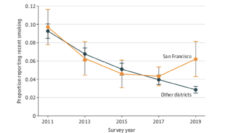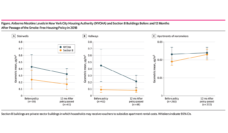Currently, 12.5% of U.S. adults smoke cigarettes. At the same time, more than one-third seek health information online, making social media a potentially powerful platform for anti-tobacco campaigns.
We conducted a novel study using artificial intelligence (AI) methods to analyze more than 30,000 Facebook posts related to major anti-tobacco campaigns in the United States to investigate the factors that may influence effective anti-smoking information dissemination and user engagement.
Our analyses suggested that the topics of anti-tobacco posts can be categorized into six main themes: health effects, social norms, cessation support, policy advocacy, personal stories, and industry criticism. Posts about health effects and policy advocacy were more prevalent than other topics, but posts about personal stories and industry criticism were more engaging than other topics.
We also found that posts with negative emotional tones were more likely to generate likes, comments, and shares from Facebook users than posts with positive or neutral tones. The users also had more favorable attitudes toward anti-tobacco messages and policies when the campaign posts provided new information.
Interestingly, our results indicate that people respond to messaging on how smoking negatively affects the lives of those they care about, including their pets. Messages that are personally meaningful to smokers can help generate positive behavioral changes among smokers.
Our study is the first large-scale social media data mining study that examined key anti-tobacco campaigns in the United States. Anti-tobacco campaigns can use our findings to improve their campaigns, better engage the public, and more effectively promote reasons to stop smoking.
Photo via Getty Images














